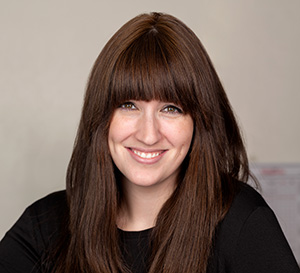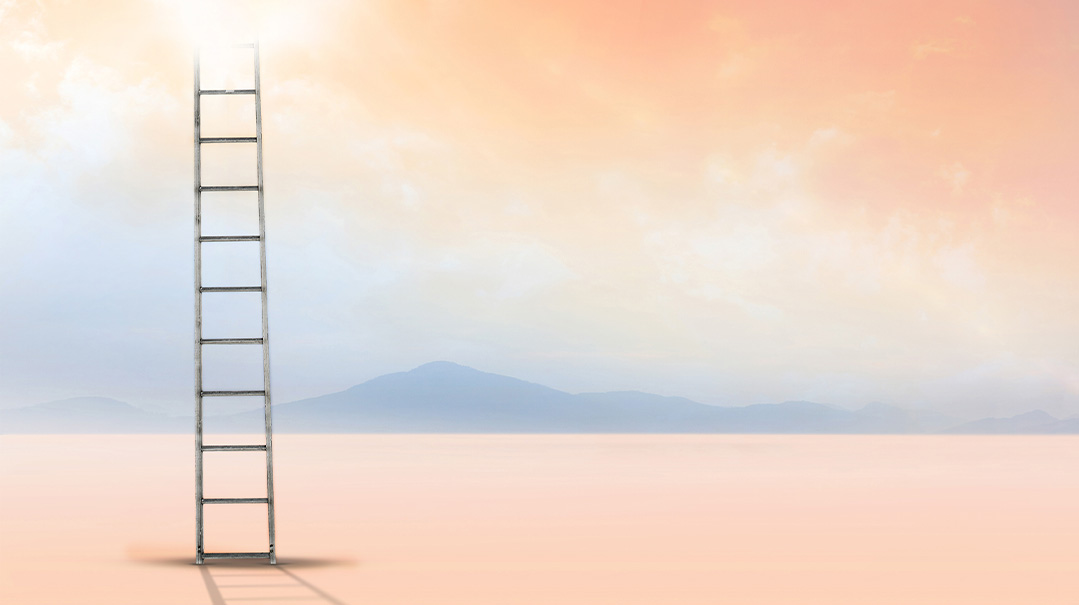Taking the High Ground

A resounding “Yes!” as 40,000 women pledged to reevaluate their relationship with technology

Coordinated by Michal Frischman
“Can we live higher?”
That was the question TAG posed at its Nekadesh event last week.
The answer? A resounding “Yes!” from 40,000 women around the globe.
And 40,000 women pledged to reevaluate their relationship with technology, to keep seeking to grow closer, to increase kedushah… to live higher.
Living Higher
Chayale Kaufman
When I started working with the TAG staff, Shmuli Rosenberg and Mrs. Rochel Fried, on this asifah, and I heard Rabbi Gottlieb’s dream, I was a bit skeptical.
Until recently, I hadn’t really appreciated TAG enough.
But as time passed and my children began getting older, I was able to appreciate this organization and the reasons it’s so critical for us. I realized that there are likely many women who feel the same way I did.
So, when figuring out the direction of the theme, we all agreed that the message had to be a positive, reassuring one that would inspire us women. We knew that we could fill up an arena, but we needed to make sure that when the attendees walked out, they got what they came for.
“LIVE HIGHER — Nekadesh” was born.
The point of this asifah was to wake up our instincts and inject new life into the daily decisions that we may not even think about anymore.
Technology is so multifaceted and so unique to each individual — so its impact on our lives is also multifaceted. For some people, it’s a time-waster. For some people, it affects the kedushah in their lives. For some people, it impacts their self-image. For others, it’s their entire parnassah.
Let me be brutally honest with you: Half of my business comes about through technology.
This event was about making better decisions, even if we feel that they are difficult (and, as Rabbi Haber said, nothing is too difficult for us).
How can I, on a personal level, choose to live higher?
What can I do to act instead of react?
What can I do to protect myself and my home, and properly gauge the influence I have on those around me?
This was an asifah for us as a klal, but the takeaways are meant to be individual, for each person on their own level. We must each look in the mirror and see what we can do to infuse our lives, our every day, with more meaning and greater holiness.
We can do it. Each of us.
We can’t afford not to.
A Better Way
Chanie Nayman
I’ll be honest, I was nervous about attending the asifah. I know how deeply phones — any phones — steal our presence, and this happens right under our noses. I have plenty of guilt around this topic. But I knew I needed to push myself to go because I needed and wanted to be part of a revolution of 40,000 women gathering to make a significant change in this area. I was expecting chizuk and a strong reminder to make this nisayon a priority, instead of leaving it on the back burner. I was just hoping I wouldn’t walk out with any extra guilt.
I left with so much more. I left with a perception shift. I was so encouraged when Rabbi Ephraim Wachsman said that this is not about what’s mutar and what’s assur. It’s about a mentality of aligning yourself with a lifestyle that’s on a higher plane, and associating yourself with that purer reality. Yes, certain levels of technology are a means for parnassah, but there’s a way to be refined about it. Treat it as a necessary evil, not as a major convenience.
I keep thinking about one of the powerful mashalim Rebbetzin Rena Tarshish shared. To get from point A to point B you may need to pass through a forest — but you can choose to take a longer, more roundabout route or you can choose to take the shortest, fastest route. Using this thinking, I can more clearly determine what is absolutely necessary, and what is simply a convenience I got used to. Rebbetzin Tarshish also encouraged us all to push ourselves just a bit harder than we ever thought we could.
I’ve always set time limits for myself, and I try to limit my use of technology to what’s necessary. But even within that, I am now pushed to question: Can I do this later? Is this really necessary? Can I find a better way?
Strong Enough
Batsheva bas Rifka Gittel
I had a full body scan scheduled in Memorial Sloan Kettering the next morning, and I was leaving for Manhattan at six a.m. There was no way I could go to the Nekadesh event.
The scan that would tell me if my cancer had spread or not. If it had, my diagnosis would change from Stage 2 to Stage 4. My prognosis would change, too. I’m passionate about the power of neshei Klal Yisrael, and the mothers of Klal Yisrael, but I had no head for events.
On Wednesday afternoon, my neighbor called: She had an extra ticket, amazing seats, and she said she’d drive… I wasn’t sure who was speaking or what the program would be, but it was an opportunity to be in the same room as 20,000 Jewish women, and I couldn’t resist.
I used to have a filtered smartphone, but when I was diagnosed, a tzaddik in Eretz Yisrael advised me that it would be a tremendous zechus to try giving it up for six months. I was running from doctor to doctor, doing tests, imaging, bloodwork, endless phone calls, wrenching decisions, processing more and more bad news, and by giving up my phone, I lost easy access to the support of my friends and family. My kosher flip phone has texting, but it’s difficult and frustrating to use. There was no way to easily send and receive messages like I was used to, and I didn’t have time for more phone calls. I felt totally cut off from my friends. I desperately needed support, but instead, I felt totally isolated.
But I stuck with it.
Sitting on the floor of the Prudential Center, I didn’t look at the speaker. Instead, my eyes were riveted to the crowd. My gaze roved over every row. I wanted to see every single face of my fellow Jewish women warriors. We have the power.
Every woman there made me strong. In my head, I screamed, I will prevail! I will keep this awful frustrating flip phone because, like Rabbi Haber said, I would give up my life for my children. I will fight cancer to live. I will fight the inconvenience and frustration of the flip phone to live.
Like all the other women here, like the Jewish women throughout the ages, I am strong enough for this.
“Nothing is too difficult for us Yidden!”
—Rav Joey Haber
“Raise your hand up as high as you can… now raise your hand even HIGHER.”
—Rebbetzin Rena Tarshish
“We want our children to be protected, we want them to have shemirah. Every bit of sacrifice, as difficult as it may be, will bring the shemirah, the kedushah, and the protection that we so desperately need into the world”
—Rav Ephraim Wachsman
“Technology is compared to nuclear energy. It’s more dangerous than it is good. We need to learn how to remove ourselves from this nuclear energy.
And if you are doing it l’Sheim Shamayim you will not suffer from it.”
—Rav Elya Ber Wachtfogel
(Originally featured in Family First, Issue 799)
Oops! We could not locate your form.






